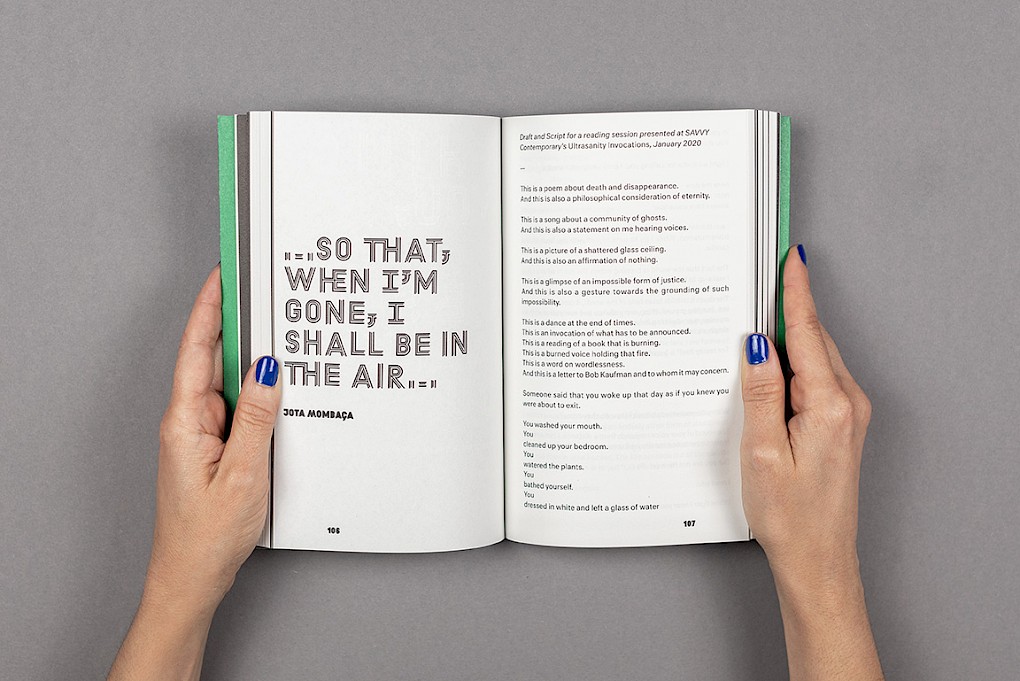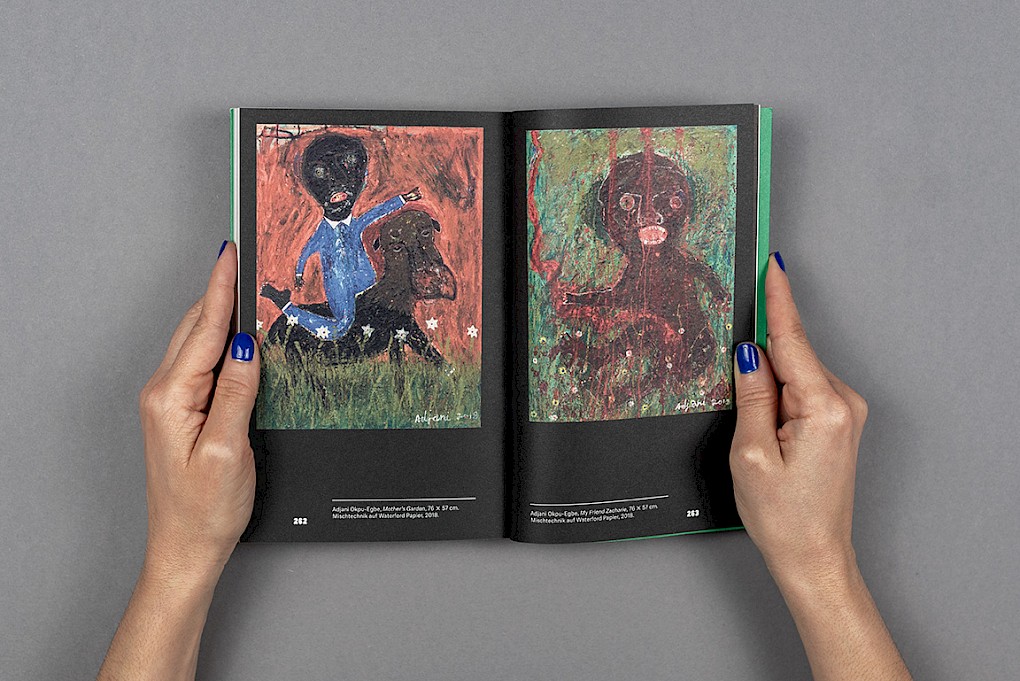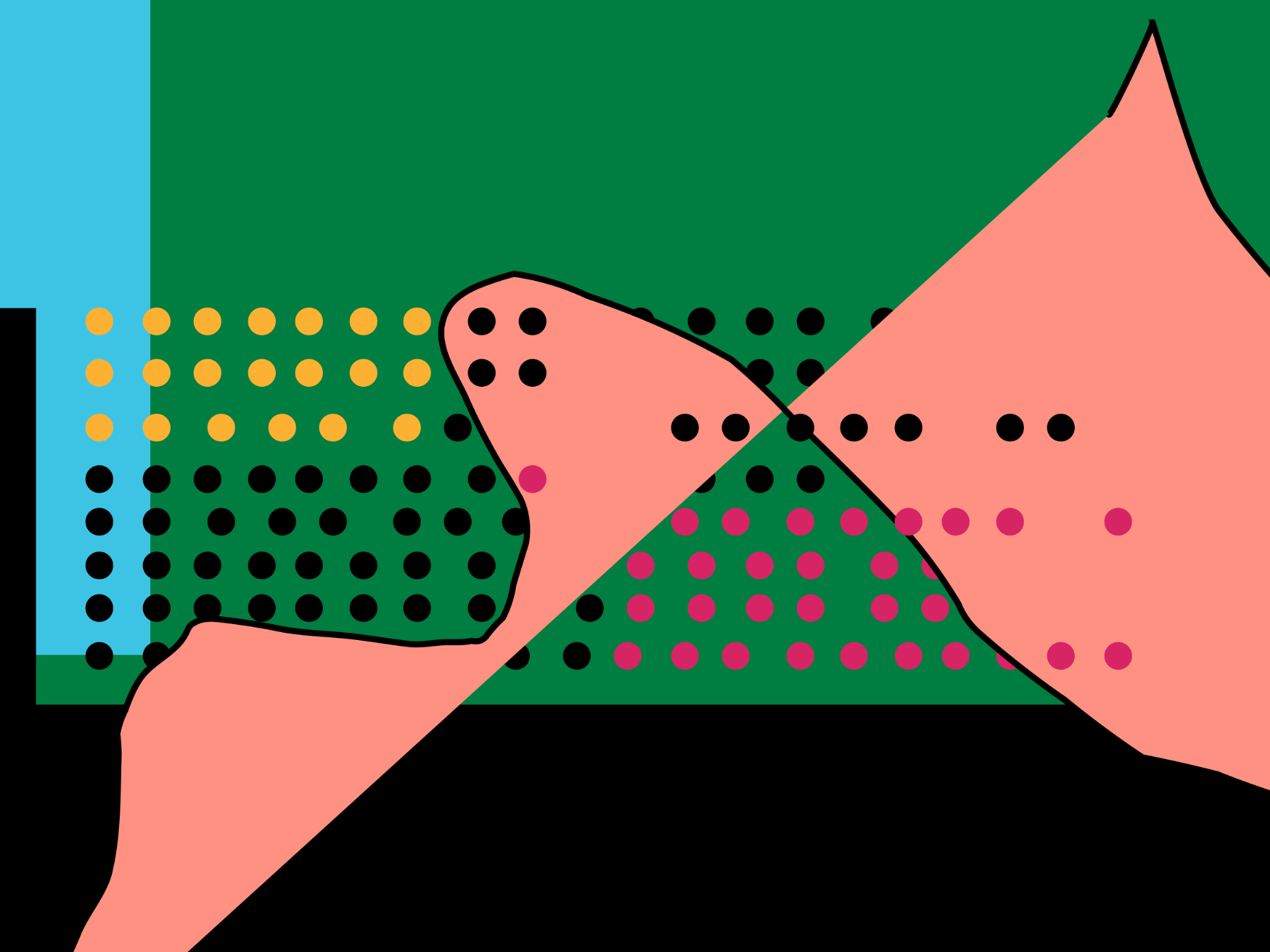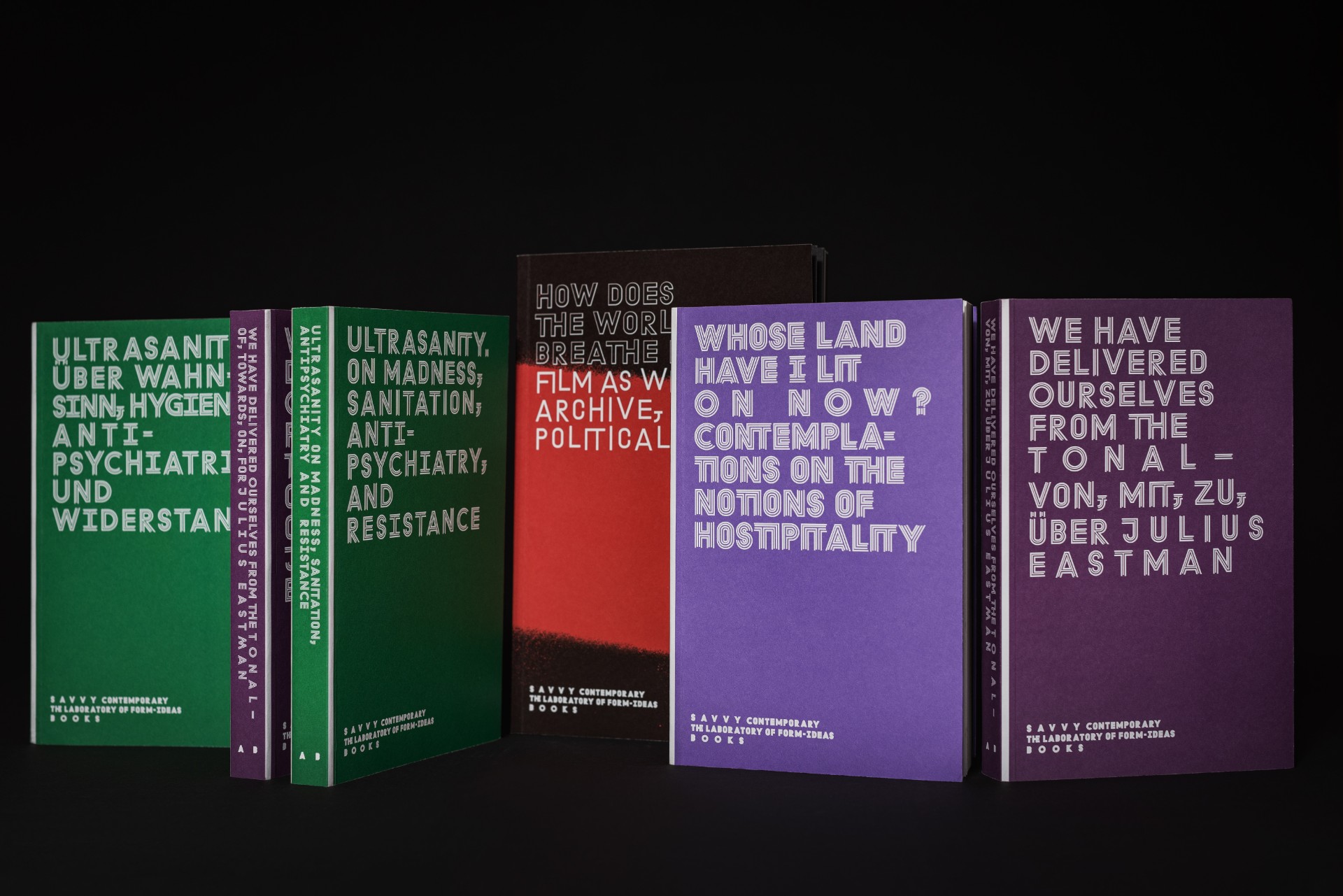Ultrasanity.
On madness, sanitation, anti-psychiatry, and resistance

With contributions by
Elena Agudio, Ghayath Almadhoun, The Brother Moves On, Sofie Boonen, Debbie-Ann Chambers, Joerg Fingerhut, Dora García, Monica Greco, Ana Gómez-Carillo, Inka Gressel, Jaswant Guzder, Kirsten Ha, Ayesha Hameed, Frederick W. Hickling, Johan Lagae, Maarten Liefooghe, Mpho Matsipa, Jota Mombaça, Dorothee Munyaneza, Bonaventure Soh Bejeng Ndikung, Alya Sebti, Sajdeep Soomal, Hortensia Völckers
Online Launch 11.03.2021 20:00
Stream via our Facebook and Youtube channel
ONLINE ARCHIVE Come stroll through the Common Garden archive that we planted for our four new books: savvybooks.savvy-contemporary.com
This publication unfolds as a collection of words, works, and images that informed, incited, and embodied SAVVY Contemporary’s project ULTRASANITY. ON MADNESS, SANITATION, ANTIPSYCHIATRY, AND RESISTANCE – an exhibition and research project on the elasticity of sanity.
It doesn’t materialise simply as a catalogue of the exhibition but as a book retracing the trajectory of a research, as an occasion to extend SAVVY’s curatorial proposition into a further choral perspective. With it we aim to deepen some of the reflections that moved and agitated us through two years of researches, conversations, programming, and practicing of Ultrasanity. The cogitations and the confrontations, the movements and the sounds, the trials and the tribulations, that accompanied us through the project and its 4 chapters and iterations are here collected to resonate one to each other, and to open new trajectories and paths.



SAVVY Books aims at promoting epistemological diversity, resonating with Boaventura de Sousa Santos’s claim that “Another Knowledge is Possible.” By acknowledging the limits and faults of academic disciplines and advocating for processes of unlearning, our effort is thus to create a platform which encourages extra-disciplinary knowledges – and promotes the thinking and writing of authors, artists, philosophers, scientists, and activists whose practices challenge Western epistemologies: looking towards epistemic systems from Africa and the African diaspora, Asia-Pacific, the Middle-East and Latin America.
The series brings together SAVVY Contemporary and Archive Books in a collaboration based on the shared interest in a multiplicity of knowledges beyond the Western canon and a commitment to foster critical discussions and forge new collaborations and coalitions. We like to think of the books in this series as “borderlands,” to use an expression by Chicana poet and feminist Gloria Anzaldúa, by which we mean spaces where “a new story to explain the world and our participation in it” can be elaborated and told; spaces where epistemological disobedience (Walter Mignolo) and divergent thinking can be practiced.
EDITED BY Bonaventure Soh Bejeng Ndikung, Elena Agudio, Kelly Krugman
GERMAN TRANSLATION BY Florian Bade, Marleen Boschen, Samira Ghoualmia, Arlette-Louise Ndakoze, Jonas Tinius
SAVVY BOOKS ART DIRECTION Elsa Westreicher
GRAPHIC DESIGN Sara Marcon, Archive Appendix
PUBLISHING Archive Books in collaboration with SAVVY Books
2020, English (German translation also available), 252 pages
ISBN 978–3–948212–35–3
PRICE 20 EUR
Available At SAVVY Contemporary (cash only) or worldwide via the publisher's website archivebooks.org
THE PROJECT WAS INITIATED BY Bonaventure Soh Bejeng Ndikung
THE PROJECT WAS CURATED BY Bonaventure Soh Bejeng Ndikung, Elena Agudio, together with co-curator Kelly Krugman
ULTRASANITY is a collaboration of SAVVY Contemporary with ifa Gallery Berlin, Association of Neuroesthetics (AoN Berlin), Picha Art Lubumbashi and the Gnaoua Festival in Essaouira. The project is funded by the TURN Fund of the German Federal Cultural Foundation (Kulturstiftung des Bundes), the Foundation of Arts Initiative, and Association of Neuroesthetics (AoN Berlin).


